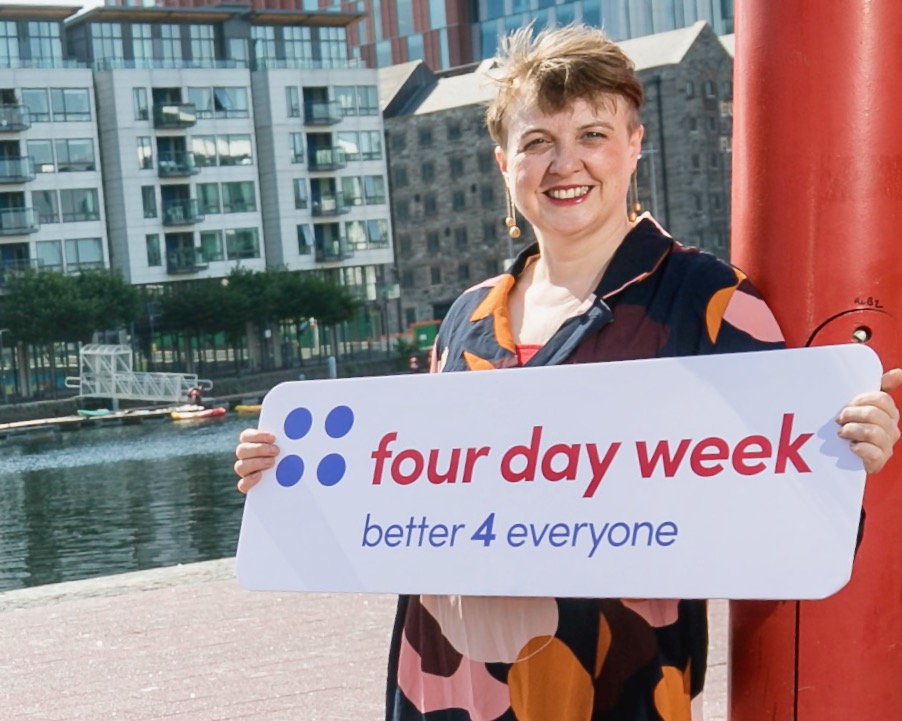
Dr Aileen O’Carroll. Maynooth University
When COVID hit last March, work changed for people throughout the world. Many lost their jobs or had their working hours cut. Overnight thousands and thousands were told to work from their homes. Time spent commuting was immediately. A great experiment in teleworking and how it affected us began. Of course this wasn’t life as normal, we were working in the middle of a frightening stressful global crisis, forced to make changes quickly. Even still, we can learn from our experience.
- If we have more time, we spend it doing things that are good for our health.
I always remember the advice a nurse once gave to a friend who found himself in a psychiatric ward for two weeks. When he left, nervous about returning to normal life, she said to him “remember you can take a well day. A day when you aren’t sick, but you will get sick, if you don’t take a day”. Unfortunately well days are not a concept supported by Irish working culture, HR or national policies. COVID however has caused us to think about the link between work and health. It is well documented that longer hours are associated with ill health and stress. Working when sick, leads to more future sickness, and of course, more sickness for those we work with. Flu rates dropped – in part because we were no longer going into work sick and thereby spreading the flu around.
More than this however, spending less time commuting, allowed many of us to find other, more healthy, ways to spend our time. We walked, we went cold water swimming, we discoed a new appreciation of nature. Research by Louise Hopper and Eric Whelan found that young people were increasingly lonely and anxious during the pandemic. We can’t forget that this was a crisis with very many negative impacts. But some good things did emerge out of our difficulties. Their research also found that some people experienced a self-discovery which they felt would be a lasting positive effect of the crisis.
- If we have more time, we spend it doing things that are good for our society.
One of the main arguments early trade unionists made when campaigning for the forty hour week and the weekend was that shorter hours were necessary for democracy to function. Tired people, exhausted people, will not participate in the debates and activities that make a healthy society work. Work, Eat, TV, Sleep, Repeat. As an aside, the US has longer working hours than Europe. When the pandemic hit, there was an outpouring of offers to help. This volunteering has continued. Books were delivered to older people trapped in their homes. Others delivered meals. Volunteers are helping in vaccine centres. As the pandemic forced us apart, we discovered how much we needed to be together. Human solidarity will save us all, but solidarity takes time. In 2015 the European Foundation of Working and Living Conditions asked workers in Ireland how they would like to spend their time: 31% would like to spend more time caring for children or grandchildren: 30% on voluntary work. The pandemic experience showed that given the time, we chose to spend it helping each other.
- If we want an equal society, we need to share the work!
However the COVID telework experiment comes with a warning. Working while being a parent is tough. Tougher if you are a woman, we knew this already. But it became harder during the pandemic. There was an increase in numbers reporting that they were too tired after work to do household tasks. The EU Foundation for Living and Working Conditions warned, that teleworking might increase gender inequality if women use the extra time to take on additional household work. The same could happen if we move to shorten hours in other ways, such as moving to a four day working week.
However, there is some good news. One of the problems with teleworking is that the boundaries between work and non-work become leaky. Worrying about work outside work is a sign of fragile work-life barriers. The same EU survey found that over the course of the pandemic the numbers who worried about decreased. They suggest that as the months went on people learned to protect their free time. If it’s possible to learn to stop work thoughts intruding, it is possible to change the way we share our household responsibilities. Still we need to learn from this experience and ensure that shorter working hours in the workplace for all, doesn’t become longer working hours in the home for women.
Finally the COVID experience told us one more thing. We learnt that with political will our working conditions can change very quickly. All it took was pressure from a small, barely, alive virus. Is it possible to reduce working hours? Yes. Will it happen? That’s up to you.

